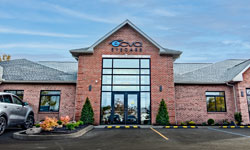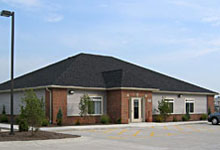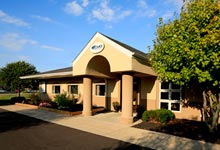Cataracts can have a dramatic impact on your vision, causing cloudiness that harms visual acuity and alters the visual field. Typically, cataracts are a normal part of the aging process. Additionally, they’re reasonably easy to treat should the need arise.
However, those with cataracts may want to do their part to slow the progression of the condition. While there isn’t a natural cure for cataracts, certain lifestyle practices may make a difference. Here are some approaches that are worth trying.
Watch Blood Sugar
Cataracts are more common in individuals with diabetes. Mainly, it’s because high blood pressure can lead to certain eye changes, such as swelling of the lens. By keeping blood sugar under control, those eye changes don’t occur, potentially lowering your risk of developing cataracts.
In most cases, you should follow your doctor’s recommendations regarding blood sugar management. Along with dietary changes, certain prescription medications may be necessary to maintain blood sugar levels. By adhering to the treatment plan, you’ll have a far easier time keeping everything under control.
Quit Smoking
Smoking is associated with a range of health conditions, including a higher occurrence of cataracts. By quitting, you could reduce your risk of developing cataracts early or may be able to slow the overall progression.
Those who want to quit have a variety of options available. You can speak with your physician about smoking-cessation medications, join smoking-cessation programs, or use over-the-counter products to make the transition easier to manage.
Avoid Excessive Alcohol Consumption
Like smoking, excessive alcohol consumption is tied to a range of health conditions. Generally speaking, consuming more than two alcoholic beverages daily increases a person’s risk of cataracts. Since that’s the case, limiting your consumption can potentially make a difference.
It’s critical to point out that serving sizes of alcohol are far smaller than most people expect. “Standard” drinks are based on alcohol levels, not beverage volumes. Based on average alcohol percentages, a serving includes 12 ounces of beer, 5 ounces of wine, or 1.5 ounces of distilled spirits. However, drinks with higher-than-average alcohol contents may actually count for two or more servings, so keep that in mind.
Eat Nutritious Foods
A diet rich in nutrients like vitamins C and E helps support good eye health. By ensuring your diet is balanced and chocked full of critical vitamins and minerals, you may reduce your odds of developing cataracts.
Wear UV-Blocking Sunglasses
UV rays can damage the eyes, even if the sun isn’t shining brightly. By wearing UV-blocking sunglasses, you prevent those harmful rays from reaching your eyes, ensuring they don’t cause damage or accelerate the development of certain eye conditions. Just make sure they’re rated for UV-A and UV-B rays, as broad-spectrum protection is a far better approach.
At ECVA, the safety and health of our patient’s eyes are our priority. If you are experiencing symptoms of cataracts or progressing cataracts, or simply haven’t seen your eye care provider in the past year, the ECVA team is here to help. Schedule an appointment at your closest ECVA clinic today.









